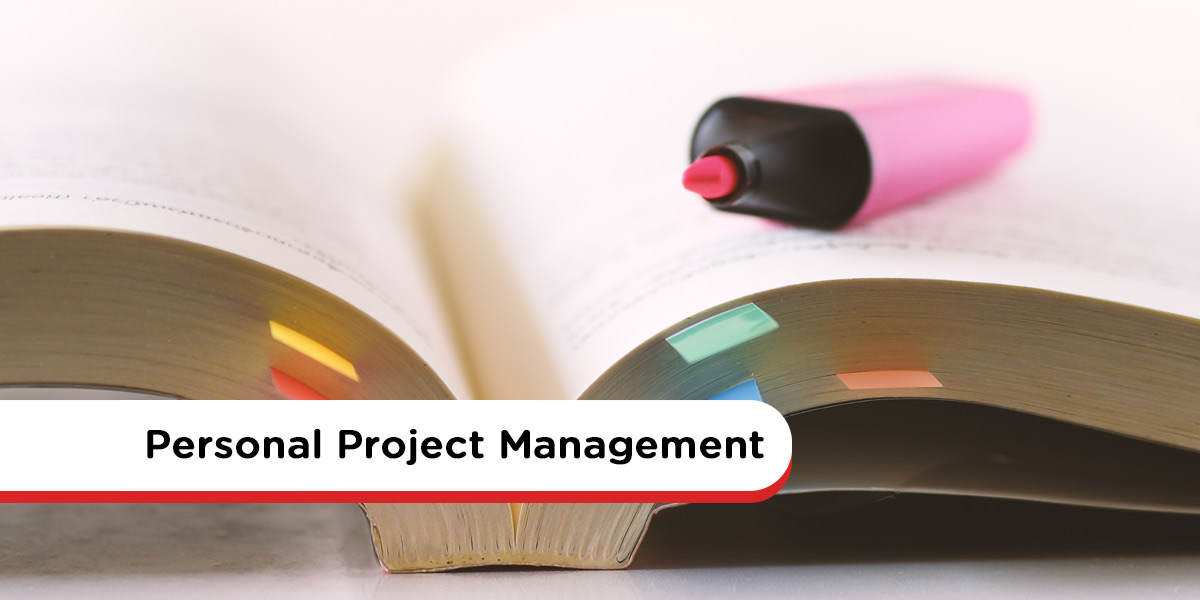
Your New Intranet Starts Here
Streamline communication, boost collaboration, and empower your team with MyHub's intuitive intranet solution.
Book a live demo now and experience the difference.
Take a Quick TourStrong organizational skills are a requirement in nearly every job description, yet many professionals only partially understand their full scope. Yes, they include time management, task delegation, goal setting, and prioritization. But true organizational strength goes further, ensuring both you and your team stay productive and meet deadlines consistently.
This post removes the guesswork by outlining the ten essential organizational skills for today’s workplace. You’ll also discover proven strategies to develop and showcase these abilities to hiring managers and recruiters.
What Are Organizational Skills?
Organizational skills refer to your ability to manage time, prioritize critical tasks, and meet deadlines. They help you stay focused on key objectives while handling multiple projects and complex responsibilities.
Importantly, organizational skills can be divided into two categories: internal and physical.
Internal Skills
Internal organizational skills involve your mental abilities, critical thinking, reasoning, and problem-solving. These competencies enable you to analyze situations, make informed decisions, and stay calm under pressure. Strong internal skills help you multitask effectively and get more done in less time.
Physical Skills
Physical organizational skills focus on creating a tidy, efficient workspace and maintaining robust systems. Examples include decluttering your desk, setting up a reliable filing system, and methodically organizing digital documents. A clean, well-structured environment directly supports higher productivity.
Why Are Good Organizational Skills Essential?
Employees with strong organizational skills are more efficient, effective, and productive. According to Gallup research, poor organization costs the U.S. economy an estimated $544 billion annually due to missed deadlines, reduced output, and lower-quality work.
Developing these skills also helps reduce workplace stress. Clutter and disorganization create anxiety, while an organized workflow brings a sense of control and balance to daily tasks.
Key benefits include:
- Improved time management
- Fewer costly mistakes
- Better decision-making and problem-solving
- Enhanced work-life balance
- Increased overall productivity
- Efficient completion of tasks and projects
Top 10 Organizational Skills For 2024
Whether you’re an employee or a manager, these organizational skills are must-haves for success in 2024 and beyond.
1. Physical Organization Skills
An ordered workspace supports an ordered mind. Maintain a well-structured digital and physical environment to work more effectively. Decluttering frees mental space for creativity and problem-solving, while reducing time spent searching for resources.
2. Time Management Skills
Effective time management means understanding how long tasks take and scheduling accordingly. Proper planning ensures on-time delivery, lowers stress levels, and supports a healthy work-life balance.
3. Delegation Skills
Strong delegation skills involve more than assigning tasks, they require giving clear instructions and adequate support. Strategic delegation empowers teams to achieve goals faster and more efficiently.
4. Communication Skills
Clear, concise communication is the backbone of organizational success. It reduces misunderstandings, saves time, and strengthens relationships with colleagues, managers, and clients. Hone your active listening skills to build trust and collaboration.
5. Ability to Prioritize Tasks
Effective organization hinges on the ability to prioritize. Identify high-impact tasks and focus on them first to maintain productivity and prevent overwhelm.
6. Self-Motivation
Self-motivation drives you to achieve goals without constant supervision. Employers value this quality because it ensures consistent performance even when challenges arise.
7. Self-Management
Closely linked to self-motivation, self-management involves careful planning, disciplined execution, and regular monitoring of tasks. It ensures you remain organized and productive throughout the day.
8. Teamwork And Collaboration
Strong teamwork and collaboration skills are vital for cohesive, high-performing teams. They promote smooth communication, mutual trust, and the achievement of shared goals.
9. Attention To Detail
Employers highly value attention to detail. It ensures accuracy, reduces errors, and protects brand reputation, saving the company time and resources.
10. Decision-Making
Effective decision-making requires researching data, analyzing outcomes, and making informed choices. Strong decision-making minimizes risks and supports better business results.
Proven Ways To Improve Organizational Skills
Need to improve your organizational skills? Help is at hand. Below are proven, actionable strategies to enhance your productivity and efficiency in any workplace.
- Create A Clear Workspace: A tidy environment fuels productivity. Clear your workstation of clutter, silence unnecessary notifications, and store documents in logical physical or digital folders. Keep essential tools and resources close, whether that’s quicklinks on the intranet or a calculator within reach. Even adding a desk plant can create a calmer space that supports better focus.
- Use Technology: Leverage productivity apps and project management software to break your day into manageable tasks. From time-tracking tools to automated intranet workflows, the right technology streamlines scheduling, reduces errors, and keeps you on track.
- Plan Your Schedule: Begin each week and day by reviewing your priorities and reprioritizing tasks. Use to-do lists or mobile reminders for effective time management, and enjoy the motivation boost of ticking off completed tasks.
- Set Up A Digital Calendar: A centralized digital calendar consolidates appointments, meetings, and to-do lists in one place. Set reminders to avoid missed deadlines and lower stress, while keeping access mobile for flexibility.
- Use Time Blocking: Block out dedicated chunks of time for specific activities. This simple yet powerful technique aids goal achievement, boosts focus, and ensures critical tasks meet their deadlines.
- Celebrate Success And Reward Yourself: Recognize your achievements to maintain motivation. Whether it’s a coffee break, a treat, or lunch with a colleague, celebrating small wins builds a positive cycle of productivity and organization.
Maintain A Healthy Work-Life Balance
Maintaining a strong work-life balance is essential for sustained organization. Your brain performs best when well-rested. Prioritize downtime with family, friends, and hobbies so you return to work recharged, focused, and ready to stay productive.
How To Highlight Organizational Skills In Your Resume
To impress hiring managers, avoid generic phrases like “highly organized.” Instead, provide specific examples of how your organizational skills drive measurable results. Use metrics to show the impact of your work and tailor your resume to each job description.
Examples include:
- Created and maintained a digital filing system to track customer orders, resulting in a 75% increase in efficiency.
- Developed a workflow management system that tracked 300 inventory units with 100% accuracy.
These examples clearly demonstrate the business benefits of strong organizational abilities. Carefully analyze the job posting for relevant keywords, such as “time management” or “planning skills”, and weave them naturally into your resume.
Remember, employers spend an average of six to seven seconds reviewing applications. A clean, well-structured, error-free document not only showcases your attention to detail but also highlights your ability to stay organized under pressure.
How To Highlight Your Organizational Skills In An Interview
The most effective way to demonstrate strong organizational skills in an interview is to arrive early, prepared with insightful questions. This shows punctuality, planning, and attention to detail, key traits employers value.
Follow these tips to showcase your abilities with confidence:
Mention Specific Examples: Provide real-world examples of how you’ve applied organizational skills in previous roles. Describe the planning process, task delegation, and execution steps that led to success. For instance, if you managed a product launch, highlight how you handled the budget, set timelines, and coordinated team members to meet every milestone.
Relate Skills To The New Job: Align your examples with the responsibilities of the position you’re applying for. Employers want to see how your time management, planning, and prioritization skills will directly support their business goals.
Organizational Skills: Quick Summary
Whether you work remotely, in a hybrid setup, or in the office, modern professionals juggle multiple tasks daily. Strong organizational abilities are essential for reducing stress, increasing productivity, and advancing your career.
By improving your organizational skills, you’ll become a more valuable employee or job candidate, and enjoy a more productive, balanced life both at work and at home.
Use this six-step plan to develop and maintain powerful organizational habits:
- Minimize Distractions: Keep your workspace tidy, turn off unnecessary notifications, and use time blocking for focused work sessions.
- Prioritize Tasks: Evaluate each task by urgency and importance, ensuring top priorities receive your attention first.
- Use A Planner: Maintain an online calendar or to-do list to track projects, meetings, and recurring tasks.
- Break Down Projects: Divide large projects into smaller, manageable tasks with specific deadlines to avoid overwhelm.
- Set Up Systems: Implement efficient systems, such as document filing structures and checklists, and commit to them consistently.
- Celebrate Success: Acknowledge achievements, take breaks, and rest to stay motivated and reenergized.
About MyHub
MyHub is a leading provider of beautifully designed, cloud-hosted intranets. Their intuitive platform helps businesses streamline communication and enhance employee productivity, boosting organizational skills across the company.
Discover the difference with a 14-day free trial or schedule a personalized demo to see how MyHub can elevate your workplace efficiency.
Organizational Skills FAQ
What are “organizational skills”?
Organizational skills are habits and techniques that help you manage time, tasks, space (physical or digital), and priorities so that work is done with minimal stress and maximal productivity.
Which techniques are most effective for improving organization at work?
Some of the most effective include planning your schedule in advance, using digital calendars and reminders, utilizing project or task management tools, clear workspace setups, time-blocking, and breaking large projects into smaller tasks.
How do you show organizational skills on a resume or in an interview?
Use specific examples (not just “I’m organized”) with measurable outcomes. Reference tools or systems you used, tasks you managed, improvements achieved (e.g. efficiency improvements), early delivery of projects, or reduced error rates. Also, format your application in a clean, logical way that reflects strong organizational ability.





